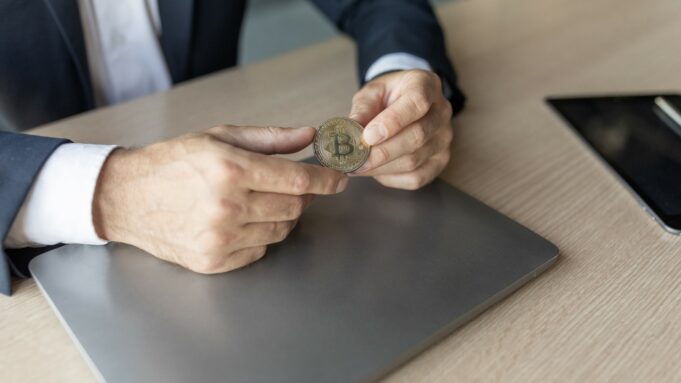Bitcoin is a digital currency that operates on a decentralized network. It is not controlled by any government or financial institution, and its transactions are recorded on a public ledger called the blockchain. Bitcoin mining is the process of verifying transactions on the blockchain and adding them to the ledger. This article will explore the concept of mining bitcoin, the rewards for doing so, and how it impacts the overall ecosystem of the cryptocurrency.
What is Bitcoin Mining?
Bitcoin mining is the process of adding new transactions to the blockchain. When a transaction is made using bitcoin, it is broadcast to the network and grouped with other transactions into a block. Miners then compete to solve a mathematical puzzle that allows them to add the block to the blockchain. The first miner to solve the puzzle is rewarded with newly minted bitcoins and transaction fees.
The mathematical puzzle that miners solve is called a proof-of-work algorithm. It requires a lot of computational power to solve, so miners use specialized hardware to compete for the reward. The process of mining is not easy, as it requires a lot of electricity to run the hardware and keep it cool. This is why many miners operate in countries with cheap electricity, such as China and Russia.
What are the Rewards for Mining Bitcoin?
The reward for mining bitcoin consists of two parts: newly minted bitcoins and transaction fees. When a miner adds a block to the blockchain, they are rewarded with a set amount of newly minted bitcoins. This amount is halved every 210,000 blocks, or roughly every four years. Currently, the reward for mining a block is 6.25 bitcoins. This means that every ten minutes, the network produces 6.25 new bitcoins.
In addition to the newly minted bitcoins, miners also earn transaction fees. When someone sends bitcoin, they have the option to include a fee to incentivize miners to prioritize their transaction. The higher the fee, the more likely it is that the transaction will be included in the next block. Miners collect these fees as part of their reward for adding a block to the blockchain.
How does Mining Impact the Bitcoin Ecosystem?
Mining is a crucial part of the bitcoin ecosystem. It ensures that transactions are verified and added to the blockchain in a decentralized manner. Without miners, the network would be vulnerable to attacks and fraudulent transactions.
However, mining also has some drawbacks. The energy consumption required to mine bitcoin is significant, and it has been criticized for its impact on the environment. According to the Cambridge Bitcoin Electricity Consumption Index, the annual energy consumption of the bitcoin network is equivalent to that of the entire country of Argentina. This has led to calls for more sustainable mining practices and the development of alternative consensus mechanisms that do not require as much energy.
Another issue with mining is the centralization of power in the hands of a few large mining pools. As mining has become more competitive, small-scale miners have found it increasingly difficult to compete with larger operators. This has led to concerns about the centralization of the network and the potential for a 51% attack, where a single entity controls a majority of the network’s computing power.
Conclusion
Mining bitcoin is a complex process that requires significant computational power and energy consumption. The reward for mining consists of newly minted bitcoins and transaction fees. Mining is a crucial part of the bitcoin ecosystem, but it also has some drawbacks, including its impact on the environment and the centralization of power in the hands of a few large mining pools. As the network continues to evolve, it is likely that alternative consensus mechanisms will be developed that address these issues and make bitcoin mining more sustainable and decentralized.

























